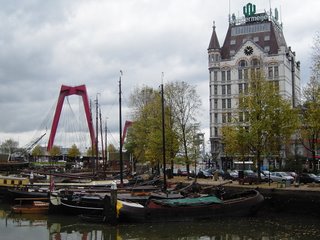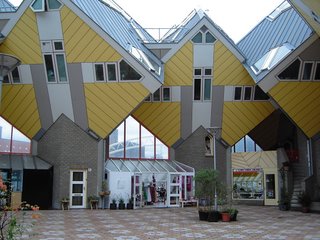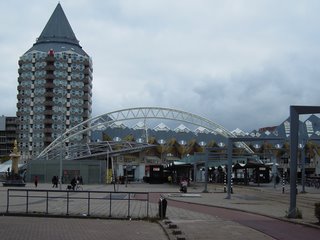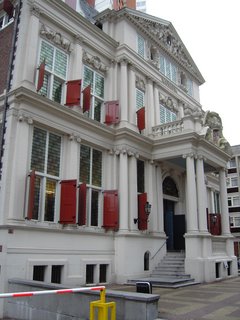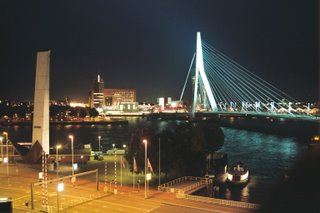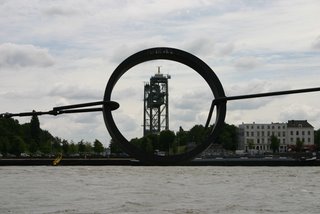Written by Alessandro Pelicioli
Cesare Pavese (1908 – Turin) graduated on Walt Whitman poetry, was first of all a good translater of English Literature, and then a writer of novels and poems. Altought his name is famous in Italy, just a few number of Italians read and appreciate this author, and this is due especially to the themes and the style of his works: in his novels he “make up the most dense, dramatic and homogeneous narrative cycle of modern Italy, and we must consider him as the richest poet in representing social ambiances, the human comedy, the chronicle of a society. In all of his pages it is easy to recognise an extraordinary depth where one never stops finding new levels, new meanings, because each one of Pavese's novels revolves around an hidden theme, something unsaid which is the real thing he wants to say.” (ITALO CALVINO – Italian conterporary writer and friend of Pavese).
The most important things that we need to realize before get nearer to this author is to recognise in his need of express himself, a “metaphorical screen for his existential condition “ and a solution for his internal conflicts, that will end, after a bad concluded love story with the american actress, Costance Dowling, with a perfectly lucid suicides on the 26th August 1950, when before swalling a strong dose of barbiturics he left this annotation in the first page of his last book, writing : "I forgive everyone and ask everyone's forgiveness. OK? Don't gossip too much." Much of his work infact, can be read as justify for living, where the suicide is destiny for someone that have no more words: at the end the satisftaction of a work, with all its anesthetic qualities, just wearies.
He is the father of an unknown prose technique, a new kind of literature that is a realism but with a neorealist experiment, and we must consider him as an authentic teacher and popularizer of realistic literature, also because he tried to make strong and to defend himself with his humanistic culture against every irrational dispersion in the artistic center.
In his works we can find his complex character, introvert and distant but at the same time also fascinated by friendship and companion, consisting in a big dichotomy between the loneliness and the need of love, city and the hill (will always remain in the writer’s mind as birth – beginning place), intellectual and man without instruction, man and woman, reality and dream, pleasure and pain, to born and to die, person busy in the politic and without any interest, and between almost every situation and his reverse, that represents in general the theme of division, frustration, the dilemma and the impossibility of reconciling different aspects of one's life, if you are not able to accept yourself, and want to become someone else.
The themes, that can be considered as something of autobiographic experience, speak about man and woman that live their life in a “enormous theatre where, more frankly than anywhere else, everyone’s drama was acted out”, that are used, for their meditative nature, to a natural introspection, for justify their life. There are a lot of beautiful pages made by the description of the psychological situation of the man definitely closed in a moral jail, in an absolute incommunicability, and the impossibilitiy to partecipate in the history, because they are not able to compromise. Further more Pavese is well known also for the usual theme of the return to the origin, for a mental pilgrimage to the mythical places of the infancy, contemplated with pleasure as the only way to draw the fullness of the provision and the awareness of every destiny.
Even if the works of art of Cesare Pavese are not full of optimism, they have the merit to permit everyone to get aware about themself, because if you read this author you can taste, and keep away from you the example of some existences made of no sense, where the person is used to live without coscience, just for work, occupation and pleasure, and for this pressed by a destiny that they can not fight, because they are always lacerated by the veil of the memory.
====================================================
C'è una ragione perché sono tornato in questo paese, qui e non invece a Canelli, a Barbaresco o in Alba. Qui non ci sono nato, è quasi certo; dove son nato non lo so; non c'è da queste parti una casa né un pezzo di terra né delle ossa ch'io possa dire “ ecco cos'ero prima di nascere ”. Non so se vengo dalla collina o dalla valle, dai boschi o da una casa di balconi. La ragazza che mi ha lasciato sugli scalini del duomo di Alba, magari non veniva neanche dalla campagna, magari era la figlia dei padroni di un palazzo, oppure mi ci hanno portato in un cavagno da vendemmia due povere donne da Monticello, da Neive o perché no da Cravanzana. Chi può dire di che carne sono fatto? Ho girato abbastanza il mondo da sapere che tute le carni sono buone e si equivalgono, ma è per questo che uno si stanca e cerca di mettere radici, di farsi terra e paese, perché la sua carne valga e duri qualcosa di piú che un comune giro di stagione.
There is a reason why I came back to this village, here and not Canelli, Barbaresco, or Alba. I wasn't born here, that's almost certain; where I was born, I don't know; there isn't a house or a piece of land or bones around here that I could say, “ Here is what I was before I was born. ” I don't know whether I come from the hill or the valley, from the woods or from a house with balconies. Perhaps the girl who left me on the steps of the Duomo, at Alba, wasn't at all a country girl, perhaps she was some landlords' daughter, or else two poor women from Monticello must have brought me there in a vintage-basket, from Neive or, why not, from Cravanzana. Who could tell what flesh I'm made of? I've traveled enough round the world to know that all flesh is good and worth the same, but that is why one gets tired and tries to put down roots, to make land and country for himself, that his flesh might be worth and stay a little more than a common round of season.
Cosí questo paese, dove non sono nato, ho creduto per molto tempo che fosse tutto il mondo. Adesso che il mondo l'ho visto davvero e so che è fatto di tanti piccoli paesi, non so se da ragazzo mi sbagliavo poi di molto. Uno gira per mare e per terra, come i giovanotti dei miei tempi andavano sulle feste dei paesi intorno, e ballavano, bevevano, si picchiavano, portavano a casa la bandiera e i pugni rotti. Si fa l'uva e la si vende a Canelli; si raccolgono i tartufi e si portano in Alba. C'è Nuto, il mio amico del Salto, che provvede di bigonci e di torchi tutta la valle fino a Camo. Che cosa vuol dire? Un paese ci vuole, non fosse che per il gusto di andarsene via. Un paese vuol dire non essere soli, sapere che nella gente, nelle piante, nella terra, c'è qualcosa di tuo, che anche quando non ci sei resta ad aspettarti. Ma non è facile starci tranquillo. Da un anno che lo tengo d'occhio e quando posso ci scappo da Genova, mi sfugge di mano. Queste cose si capiscono col tempo e l'esperienza. Possibile che a quarant'anni, e con tutto il mondo che ho visto, non sappia ancora che cos'è il mio paese?
So for a long time I believed this village where I wasn't born were the entire world. Now that l've seen the world and know it is made of many little villages, l'm not sure I was really wrong as a boy. One goes about by sea and by land, as the youngsters of my time went to near-by village fairs, and danced, drank, brawled, brought home the flag and the broken knuckles. They make grapes and sell them at Canelli; they gather truffles and take them to Alba. There is Nuto, my friend from Salto, who provides with wooden tubs and wine presses the whole valley up as far as Camo. What does it all mean? You've got to have a country, if only for the pleasure of leaving it behind. A country means not to be alone, to know that in the people, in the trees, in the earth, there is a part of you, that stays there for you even when you are not around. But it isn't easy not to be restless there. I've been watching it for a year and I run up there from Genoa whenever I can, yet it eludes me. These things you understand with time and experience. Is it possible that at forty, and with all the world l've seen, I shouldn't yet know what my country is?
From “ THE MOON AND THE BONFIRES” Cesare Pavese


